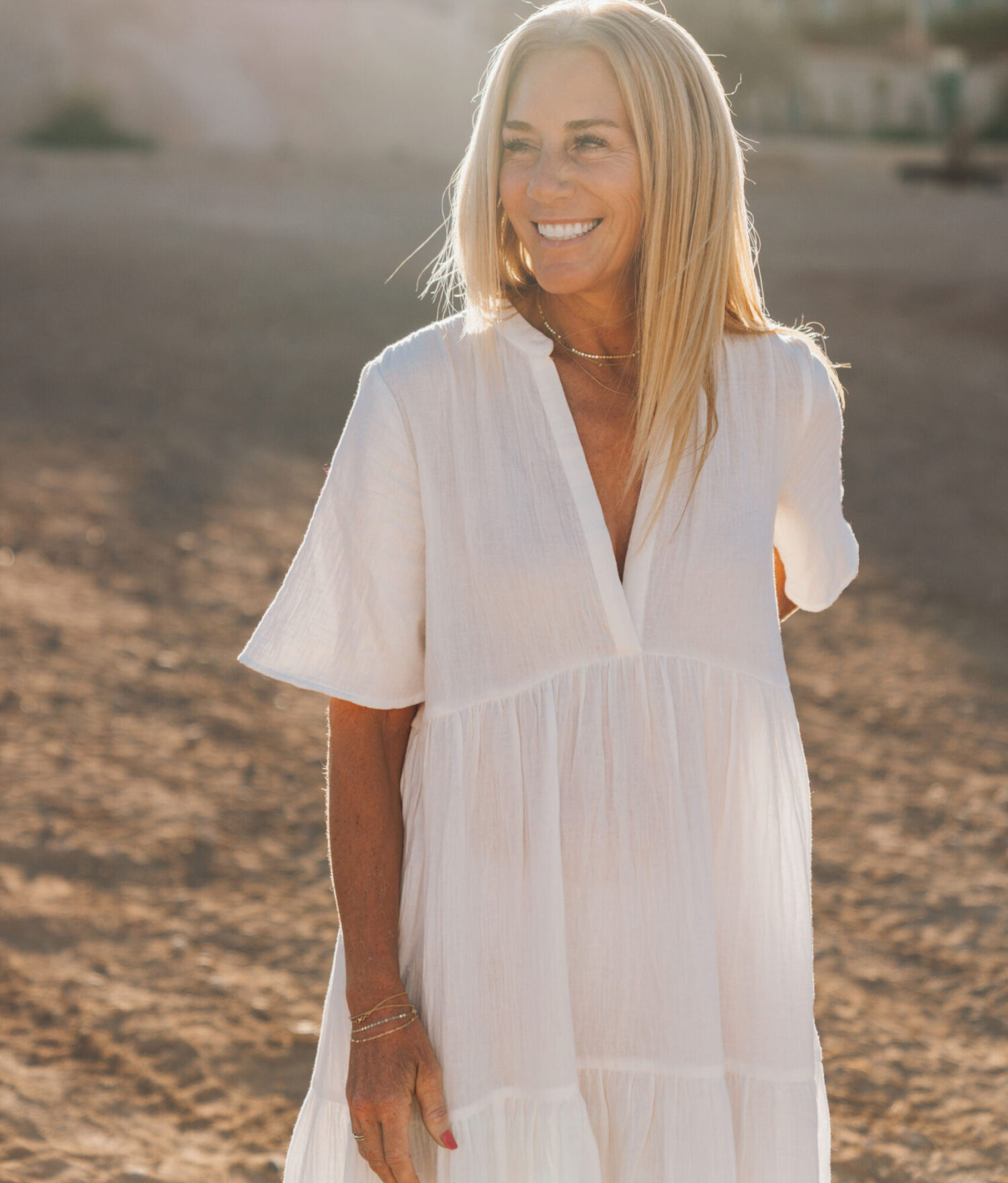
For the past five years, I have visited my mother’s grave weekly. Each time I stare at her name on the headstone, I journey somewhere inside that I don’t always frequent amidst my frenzied daily routine. I pause. I reflect. I think about the night before she passed away. Her faraway gaze. Her tone, which was both matter-of-fact and soft. I wonder if she had any idea that it would be her last night alive. Something inside of me believes she did know. She was staring off in the distance as if her communications were elsewhere. We were out to dinner, and I didn’t like my salad. “Return it,” she said. “You don’t have to eat something you don’t like.” It was a common-sense statement at the time, but now, it serves as a reminder to me that I have choices. I don’t have to just accept things. I can take action. That’s part of the gift of being alive.
This week marked my first visit to her grave for the New Year. It was breezy and cool in the late Florida afternoon, and I assumed that most of the visitors had already left. There was only one other person near a gravesite. The ground keepers were riding lawn mowers up and down the rows, and there were wisps of grass on my mother’s tombstone. I could almost hear her asking me to tidy it up for her. I brushed the grass off, including the one big clump of it in the upper left-hand corner.
Sitting there, mortality surrounding me, I felt heavy with life. While the new year is full of excitement, there’s a sense of responsibility, too. How will I make this year better than the last one? How will I make the time I have on this earth count? How will I let go of what everyone else has accomplished and try to carve my own path? Sometimes, it is hard to know which route is the right one, hard not to judge oneself against others’ achievements.
I thought about my mom’s accomplishments—what her legacy was about. Undoubtedly her no-nonsense personality and her jewelry and pocket-book collections were what she was famous for amongst her friends and family. Then there were her outspoken views, her sensitivity, and her ability to thrive in sickness when others would have collapsed. What would my legacy be, but more importantly, what did I want it to be?
We live in a society in which we are often judged and evaluated based on what we produce or accomplish. But does that have anything to do with who and what we are at our core? While my feats may fill a resume, do they say anything about what I think or feel or believe? Do they expose what is closest to my heart? The sky darkened, and gusts of wind foretold that rain was approaching. I wasn’t ready to go. Being surrounded by death often instigates me to try to get living right. My questions were leading me to more questions. Truth is like that—constantly unfolding, leading us deeper into the parts of ourselves that we tend to shy away from. We hear all too often that it is not the destination, but the journey that counts. But I’d contend that we are always seeking a destination—and that society makes it so. Those who pursue the journey are somehow not taken as seriously. We are told to live, enjoy, while simultaneously, the message is to get where we are going, and get there fast, or others will beat us there. And then what? Will we be displaced, as in a game of musical chairs with us coming up short?
The questions persisted. What was my life’s mission? If I didn’t know what I wanted my legacy to be, how would I work towards it? But maybe that was just it. Maybe we don’t ever live towards our legacies, and thinking that we can is a lie. Maybe it truly is about the journey, and our job is to live each day the best that we can, committing to our household chores and our professions alike to the best of our ability. Maybe legacies are the stories that others attribute to us in their own desire to sum up our lives into something neat and tidy.
My mom’s name glared back at me in chiseled letters. She was here, and now she was not. Like all of the people buried around her, she lived, and she died. Each grave represented a life, a history, a story that unfolded over days and months and years. The souls surrounding me were gone from this earth, but their existence was immortalized on tombstones: names, dates, and titles. Perhaps our legacies are not about grand endeavors, but containable ones, and that the most we can hope for when we cease to be, is that to someone, somewhere, our existence made a difference in some small, but consequential way—even if it’s to help them acknowledge the privilege of being alive.
